
 Educated and Empowered, Thanks to ALEF Fund
Educated and Empowered, Thanks to ALEF Fund
J. is a single parent and a survivor of domestic violence. She receives no financial support from her ex-husband, who was her abuser, and works very hard to make ends meet. One of the joys of her life is that her daughter is getting an incredible Jewish day school education at Atlanta Jewish Academy, thanks to scholarship support from ALEF Fund.
“When I moved back to Atlanta from out of state, I was pretty broken from my marriage,” she remembers. “As we looked at school options, I had concerns. Our zoned public school has an open campus and it worried me that someone could easily walk into the building off the street. When you’ve been in an abusive marriage you learn to be hyper vigilant and protective. I was thrilled to find a position at Atlanta Jewish Academy. The school was everything I dreamed of for my daughter — amazing facilities, Hebrew language instruction, Jewish values, and great campus security, with gates and intercoms and a culture of vigilance. But the cost of tuition put it out of reach. Then I heard about ALEF Fund.”
“When I learned about the ALEF Fund state tax credit, I opted in right away. “It makes me so happy to know that by participating in ALEF Fund I am paying it forward for others like me who depend on tuition help for Jewish schools. My small contribution helps fund substantial scholarships, so it feels like a win-win! I don’t know why everyone doesn’t do it!”
“My daughter is thriving at her school and every day she teaches me something new about Judaism. We were at Six Flags recently and she heard a family speaking another language, which she recognized as Hebrew. She went right up to them and introduced herself in Hebrew! The father was so impressed with her language skills. I was blown away!”
“I was lucky to attend Hebrew Academy as a child in Atlanta. It gave me foundational Jewish literacy and taught me to read and write Hebrew. Now my daughter has surpassed me in her Jewish education. I am so grateful to ALEF Fund, for opening these doors for my daughter. Knowing that she is educated and empowered is everything to me!”
Georgia taxpayers have until December 31, 2019 to make a 2020 pledge to ALEF Fund and redirect a portion of their GA state taxes to become scholarships at 18 Jewish day schools, preschools and high schools. Questions? Contact Nicole Flom right away!
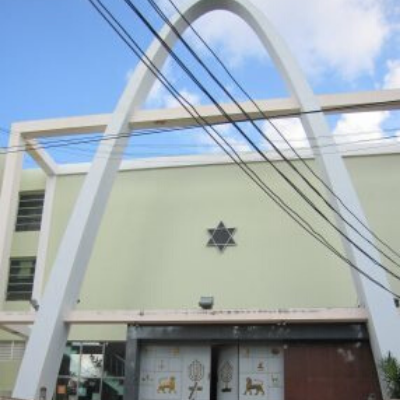
 Federation Women Support Nutrition and Education in Cuba
Federation Women Support Nutrition and Education in Cuba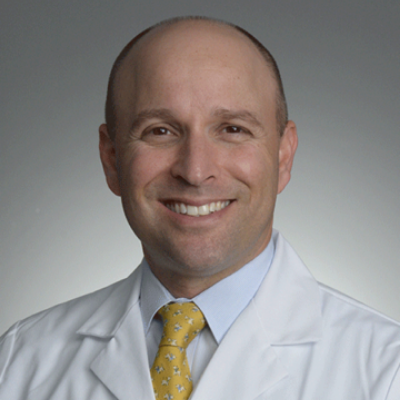
 A
A 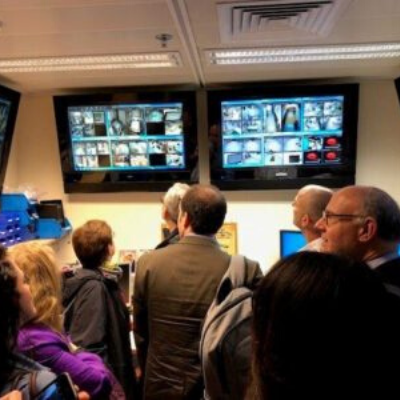
 A group of Atlanta medical professionals who are passionate about medical innovation – have just returned from Federation’s inaugural Medical Mission to Israel. The week-long trip showcased Israeli medical achievements and exposed participants to the many ways Israelis think out of the box to solve complex problems. “Innovation appears to be woven into the fabric of Israeli life,” said James Rains, PE, Professor of Practice at Georgia Tech. “Seeing the underground hospital at Rambam that can handle 2,000 patients, or learning how Israel sets up field hospitals in disaster areas, demonstrated an amazing level of preparedness. I was also blown away by the maturity of Israeli young people. After investing 2-3 years in army service, they are problem solvers and team players who are ready to launch careers. We can learn from that.”
A group of Atlanta medical professionals who are passionate about medical innovation – have just returned from Federation’s inaugural Medical Mission to Israel. The week-long trip showcased Israeli medical achievements and exposed participants to the many ways Israelis think out of the box to solve complex problems. “Innovation appears to be woven into the fabric of Israeli life,” said James Rains, PE, Professor of Practice at Georgia Tech. “Seeing the underground hospital at Rambam that can handle 2,000 patients, or learning how Israel sets up field hospitals in disaster areas, demonstrated an amazing level of preparedness. I was also blown away by the maturity of Israeli young people. After investing 2-3 years in army service, they are problem solvers and team players who are ready to launch careers. We can learn from that.”
 Our 40 Under 40 Mission to Israel is Federation’s first trip of its kind. Right before Rosh Hashanah, 40 talented young adults will embark on a week-long journey throughout Israel and experience dimensions seldomly explored on a mission. These participants from our NextGen community are a diverse mix of recent college grads living Intown and those just beginning their professional careers; young parents and single professionals working in fields like law, medicine, finance, non-profit, marketing and more. Eight have never been to Israel before, eighteen are Birthright alumni — more than half of whom have not been back since. They want to deepen their connections to Israel and to the Jewish community in Atlanta when they return. They’ve met in advance and prepped for the trip, knowing they’ll be encountering Israel’s innovation leaders in tech, business, government, and spirituality. In addition to experiencing the beauty of Israel, they’re also ready to encounter the tough issues around pluralism and geo-politics that make everything in Israel “complicated.” We’re invested in building their leadership capacity and their advocacy for Israel and Jewish values.
Our 40 Under 40 Mission to Israel is Federation’s first trip of its kind. Right before Rosh Hashanah, 40 talented young adults will embark on a week-long journey throughout Israel and experience dimensions seldomly explored on a mission. These participants from our NextGen community are a diverse mix of recent college grads living Intown and those just beginning their professional careers; young parents and single professionals working in fields like law, medicine, finance, non-profit, marketing and more. Eight have never been to Israel before, eighteen are Birthright alumni — more than half of whom have not been back since. They want to deepen their connections to Israel and to the Jewish community in Atlanta when they return. They’ve met in advance and prepped for the trip, knowing they’ll be encountering Israel’s innovation leaders in tech, business, government, and spirituality. In addition to experiencing the beauty of Israel, they’re also ready to encounter the tough issues around pluralism and geo-politics that make everything in Israel “complicated.” We’re invested in building their leadership capacity and their advocacy for Israel and Jewish values.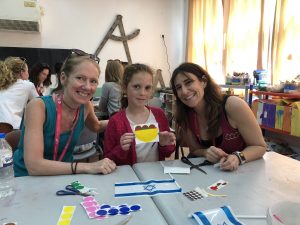
 By Juli Itzkovitz, Creative Director at Federation
By Juli Itzkovitz, Creative Director at Federation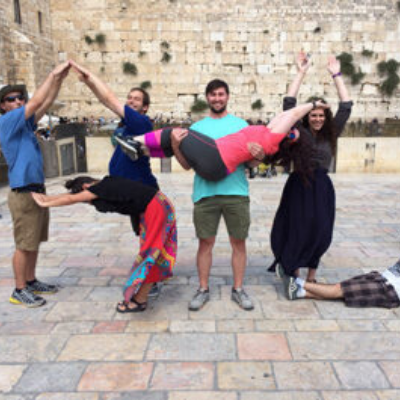
 When I signed up for my Taglit-Birthright Israel trip, I hadn’t thought much about being Jewish since my bar mitzvah at Temple Kol Emeth. My college years at Georgia Tech had been about the usual stuff – studying, football, swim team, and my friends. This Birthright trip touched me in ways I didn’t expect. I honestly didn’t want to leave.
When I signed up for my Taglit-Birthright Israel trip, I hadn’t thought much about being Jewish since my bar mitzvah at Temple Kol Emeth. My college years at Georgia Tech had been about the usual stuff – studying, football, swim team, and my friends. This Birthright trip touched me in ways I didn’t expect. I honestly didn’t want to leave.
 Five years ago, Maddie Cook traveled to Israel with Birthright Israel Atlanta. Her encounter with Israel came full circle when she became a leader on our 2019 Summer Birthright trip. Curiosity about Israel drove Maddie to sign up for her first trip. Creating community was her motivation to lead one.
Five years ago, Maddie Cook traveled to Israel with Birthright Israel Atlanta. Her encounter with Israel came full circle when she became a leader on our 2019 Summer Birthright trip. Curiosity about Israel drove Maddie to sign up for her first trip. Creating community was her motivation to lead one.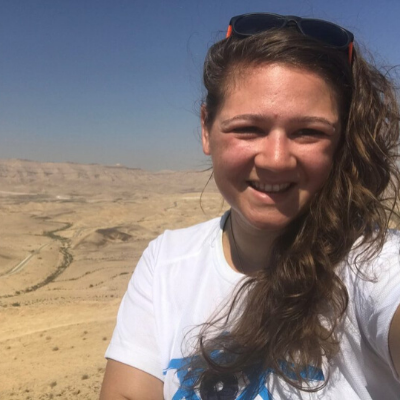
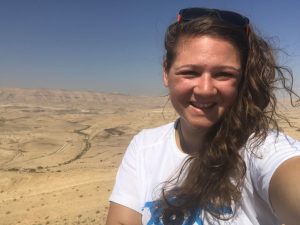
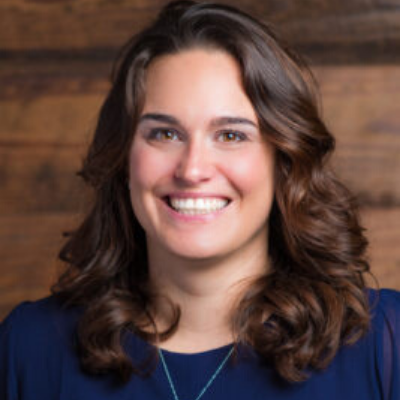
 Q: How did your background as a Judaic Studies teacher prepare you to lead JumpSpark?
Q: How did your background as a Judaic Studies teacher prepare you to lead JumpSpark?

